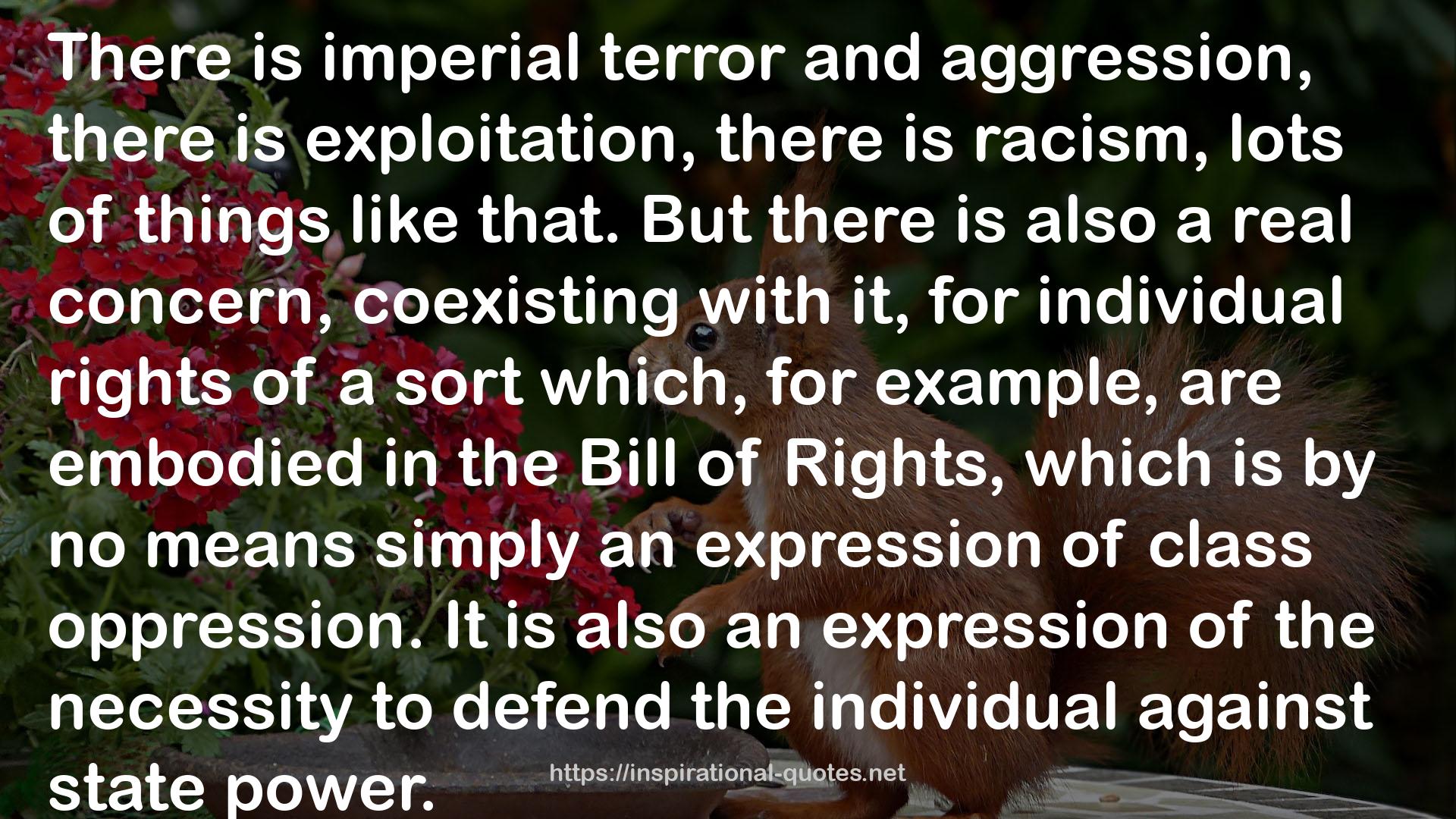2
" The government has a great need to restore its credibility, to make people forget its history and rewrite it. The intelligentsia have to a remarkable degree undertaken this task. It is also necessary to establish the "lessons" that have to be drawn from the war, to ensure that these are conceived on the narrowest grounds, in terms of such socially neutral categories as "stupidity" or "error" or "ignorance" or perhaps "cost."
Why? Because soon it will be necessary to justify other confrontations, perhaps other U.S. interventions in the world, other Vietnams.
But this time, these will have to be successful intervention, which don't slip out of control. Chile, for example. It is even possible for the press to criticize successful interventions - the Dominican Republic, Chile, etc. - as long as these criticisms don't exceed "civilized limits," that is to say, as long as they don't serve to arouse popular movements capable of hindering these enterprises, and are not accompanied by any rational analysis of the motives of U.S. imperialism, something which is complete anathema, intolerable to liberal ideology.
How is the liberal press proceeding with regard to Vietnam, that sector which supported the "doves"? By stressing the "stupidity" of the U.S. intervention; that's a politically neutral term. It would have been sufficient to find an "intelligent" policy. The war was thus a tragic error in which good intentions were transmuted into bad policies, because of a generation of incompetent and arrogant officials. The war's savagery is also denounced, but that too, is used as a neutral category...Presumably the goals were legitimate - it would have been all right to do the same thing, but more humanely...
The "responsible" doves were opposed to the war - on a pragmatic basis. Now it is necessary to reconstruct the system of beliefs according to which the United States is the benefactor of humanity, historically committed to freedom, self-determination, and human rights. With regard to this doctrine, the "responsible" doves share the same presuppositions as the hawks. They do not question the right of the United States to intervene in other countries. Their criticism is actually very convenient for the state, which is quite willing to be chided for its errors, as long as the fundamental right of forceful intervention is not brought into question.
...
The resources of imperialist ideology are quite vast. It tolerates - indeed, encourages - a variety of forms of opposition, such as those I have just illustrated. It is permissible to criticize the lapses of the intellectuals and of government advisers, and even to accuse them of an abstract desire for "domination," again a socially neutral category not linked in any way to concrete social and economic structures. But to relate that abstract "desire for domination" to the employment of force by the United States government in order to preserve a certain system of world order, specifically, to ensure that the countries of the world remain open insofar as possible to exploitation by U.S.-based corporations - that is extremely impolite, that is to argue in an unacceptable way. "
― Noam Chomsky , The Chomsky-Foucault Debate: On Human Nature

